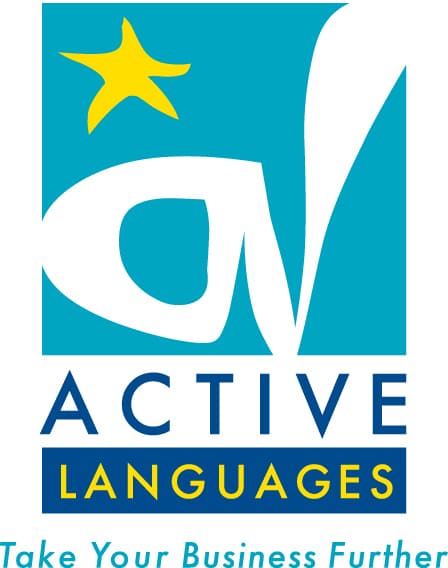As you know from working with Active Languages and reading our content, translation is more than just transferring a message from one language to another. It’s about adapting your content or product to suit a specific market or region. And that’s where localisation comes into play.
In the words of Nelson Mandela, “If you talk to a man in a language he understands, that goes to his head. If you talk to him in his language, that goes to his heart.”
Localising your content and product is more likely to secure customer loyalty and connect with a wider audience than if you just take the easy road and think “that will do.” This blog from Active Languages is going to take you through different aspects of localisation and give you a few examples from the real world to illustrate localisation in business.
One size fits all?
You mustn’t think that what works in your country or your language will work just as well elsewhere. There are cultural aspects and customs that need to be addressed, making localisation so essential.
Let’s take the Share a Coke campaign that Coca-Cola launched in 2014 in Australia as an example. The idea was to print labels bearing the 150 most popular names in Australia so people would buy them for friends and family. It was a huge success and went global. The thing is though, “John” and “Emma” are common enough names in English-speaking countries but you’re unlikely to find many elsewhere, which is why the names had to be localised to suit the different countries. Another issue that arose is that addressing someone by their first name is considered disrespectful in China. How did they get around it? Coca-Cola had nicknames printed on the packs in China instead. Localisation takes a little more thought but has a lot more impact when you get it right!
Variety is the spice of life
Language is alive and comes in all forms. Just take English and how British English differs from American English. As similar as they are, if you want to localise your American website for a British audience then you have to think about spellings (“s” instead of “z”), vocabulary (“pavement” instead of “sidewalk”), date formats etc. The problems arise when businesses use automatic translation tools which will go for the most common form of a language, as opposed to a human translator who will choose the right dialect or form for the audience. If you want to launch a new product in the Colombian market then you want a Colombian Spanish translator, not an automatic translation tool which will translate your content into European Spanish.
An example of automatic translation vs localisation cropped up in 2024 when Glasgow Airport had a poster written in Gaelic to celebrate the opening of its new Caledonia restaurant. The problem was that instead of sending it to a reputable translation company like Active Languages, they used a machine translation which opted for Irish Gaelic as the most common form of Gaelic. Naturally, people were up in arms about a Scottish restaurant having an Irish Gaelic ad and it alienated the very people it wanted to attract!
What’s in a name?
You’ve spent a long time working on your product and coming up with a name that resonates with your company and captures the soul of the product. It’s worth spending a little more time having a translation company like Active Languages translation agency check that the name doesn’t already exist in the market you’re targeting or doesn’t have any unwanted meaning attached to it.
A few years ago, our translation agency received a translation from a French company making bags and wanting to launch in the UK. We spotted that one of the bags was named “Loo” and immediately informed the client of what the word means in English. They were very grateful as no matter how good the bag looked, it simply wouldn’t have sold here and they would never have understood why. Another example is IKEA and its “Fartfull” workbench that was sold in the US market. It may come from the Swedish word for “fast”, but means something else entirely in English and attracts the wrong sort of attention. It surely knocked the wind out of IKEA!
Picture perfect
You may think that nothing can go wrong when it comes to images and emojis in other languages. They must be universal right? Wrong! Just like different images conjure up different emotions in different people, the same applies to other cultures and languages. Let’s take the thumbs up emoji: it may be a sign of approval in many countries, but it can be vulgar or offensive in Greece and the Middle East. The Western world uses the angel emoji to capture a good deed or sense of goodwill, but in China it’s used as a sign of death and may even be perceived as threatening to the audience.
A real-life example of the misuse of images in business is Procter and Gamble in Japan in the 1970s. P&G came up with a TV ad with a stork delivering disposable nappies, a product that 70s households were delighted to see in place of messy and labour-intensive cloth nappies. The market was certainly there, but business failed to boom in Japan because storks don’t deliver babies in Japan – peaches do. And if P&G had done their homework in the first place then they wouldn’t have had to deal with the domestic competition that followed their product launch before they had time to clean up their mess.
If your business operates outside your home country, you simply cannot underestimate the importance of translation and localisation. Fortunately for you, Active Languages sees localisation as part and parcel of translation and our native translators will naturally adapt your projects to suit the audience or market you wish to target.
Translation and Localisation: If any concerns or issues crop up, we will inform you right away so you can tell us how you want to proceed or make the changes necessary before you go to market. Get it right first time, connect with your audience and show you care about your target market with content that speaks to them.
Contact Active Languages for all your translation and localisation needs.
Also contact Active Languages for our range of Study Abroad options: French language courses in France, Summer camps for Teens in England and in France, the Paris Saint-Germain Academy England football camps in the UK.
Contact Active Languages today: Contact us




